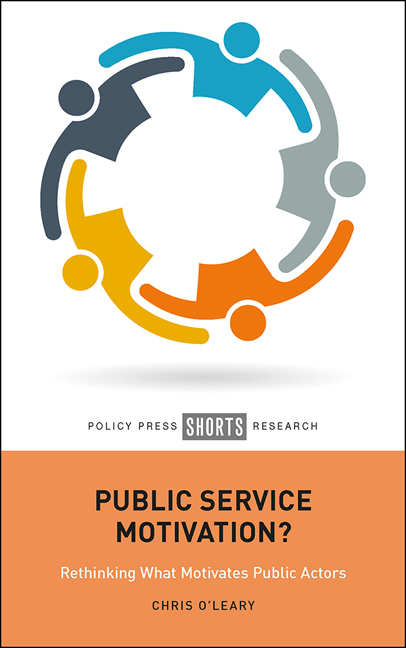Summary
The call of public service
That people are motivated to work for the public interest, for the good of others, for the betterment of society, is a long standing and appealing idea. It has been core to the writings of political philosophers in ancient Greece and Rome, in Medieval times and through to modern times (O’Toole, 2006) This simple proposition is repeated in works as diverse as Plato’s The Republic (1987) and Woodrow Wilson’s The study of administration (1887). This ‘common good’ has a number of different dimensions, in both civil society and in government. It covers volunteering, civic participation, a sense of public duty and public employment. It is this latter aspect of public service that is the focus of this book. It is the idea that public servants will put aside their own interests, motivated by a sense of public service or public duty, and that this is a ‘higher order’ of commitment than to self, tribe or family (Horton, 2008).
But by the middle of the 20th century, the idea that public employees were working in the public interest was increasingly under attack. A wave of academics and others started toquestion what the ‘public interest’ really meant, how it was operationalised and whether other interests might be at play. These views started to influence politicians, particularly with the election of Margaret Thatcher in the UK in 1979 (Le Grand, 2003) and Ronald Reagan in the USA in 1980. But it did not take long for public interest fightback to begin. This started with the publication of a highly cited and influential article ‘The motivational bases of public service’ by James Perry and Lois Wise (1990). In this article, the authors asserted that public service motivation is an individual’s ‘predisposition to respond to motives grounded primarily or uniquely in public institutions or organisations’ (p 368) and included ‘a desire to serve the public interest’ (p 370). Their conception of, and empirical evidence for, public service motivation has since developed to become almost hegemonic in the academic field of public administration, and has considerable real-world impact on the design and delivery of public services.
- Type
- Chapter
- Information
- Public Service Motivation?Rethinking What Motivates Public Actors, pp. 1 - 22Publisher: Bristol University PressPrint publication year: 2022



